A JOURNEY OF MANY FIRSTS: Daily Reflection on Deep Learning Indaba 2024
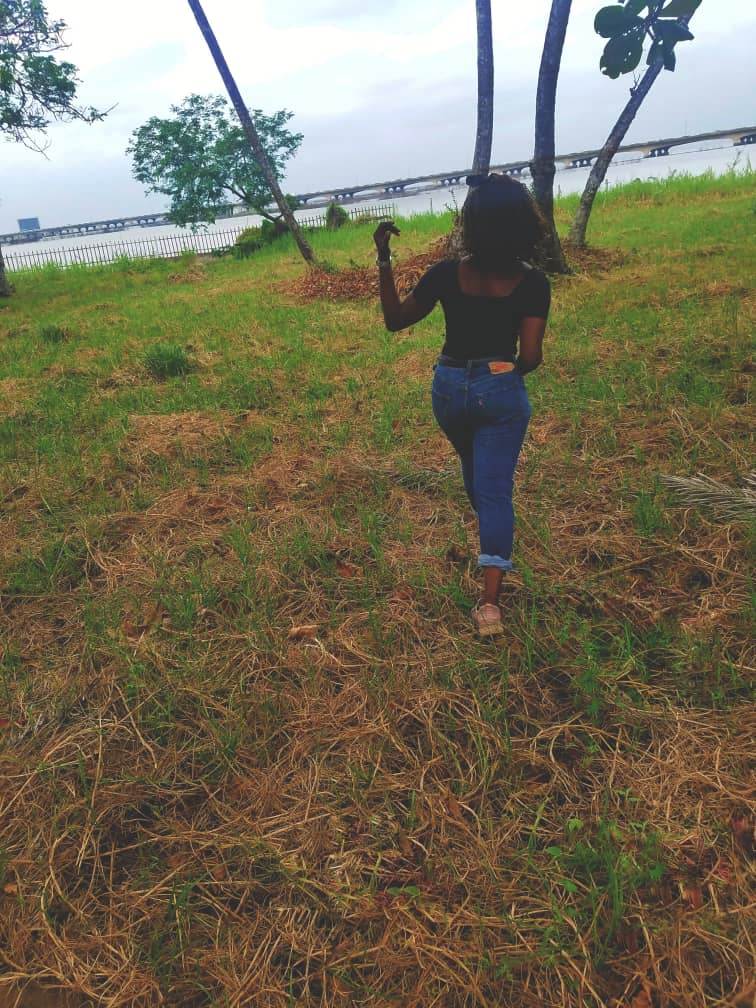 Flora Oladipupo
Flora Oladipupo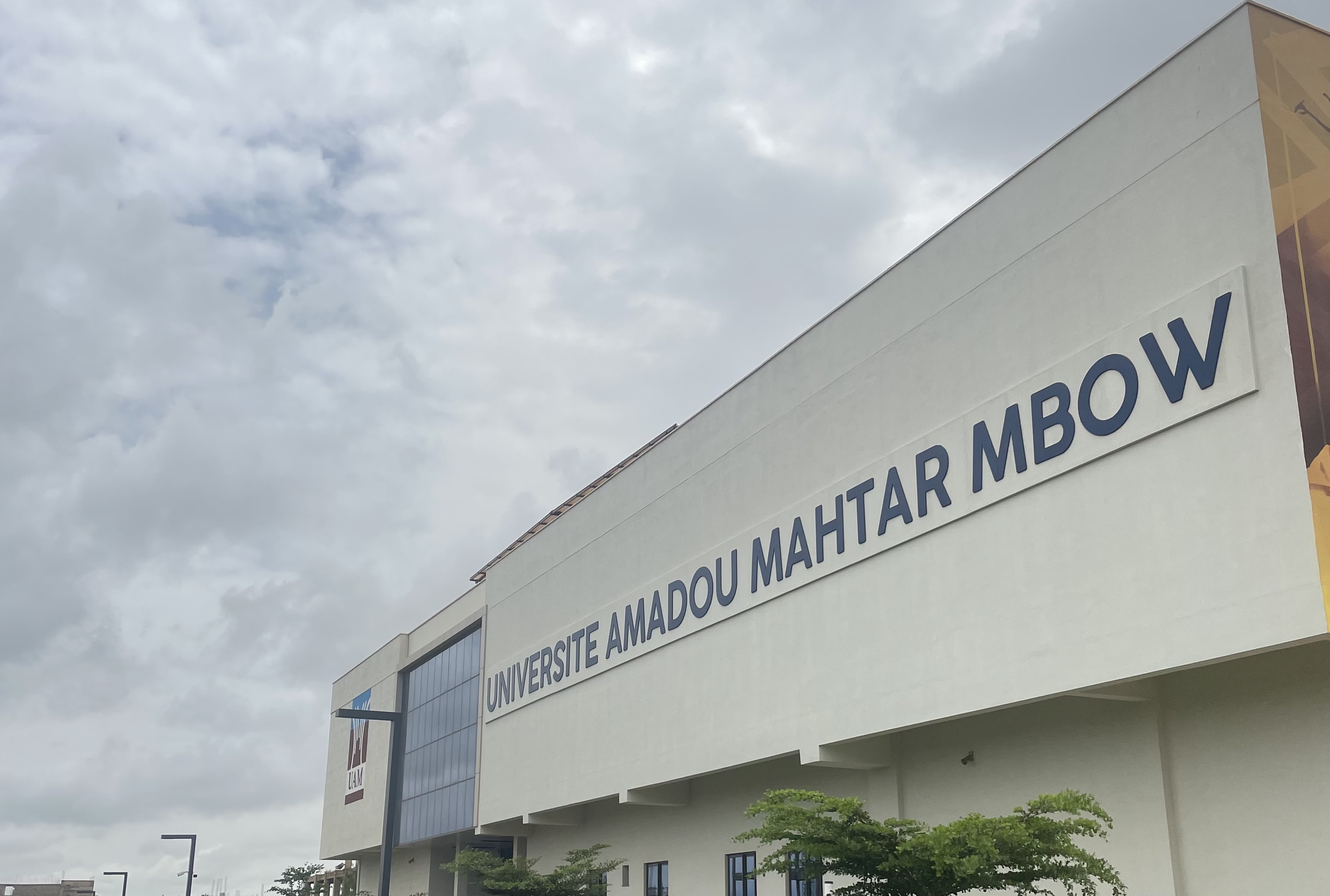
It's that time of year again when AI researchers from across Africa come together to learn, present their work, network, and have some fun welcome to Deep Learning Indaba 2024! This year's event was held at Université Amadou Mahtar MBOW in Dakar, Senegal. If you're new to the Deep Learning Indaba and wondering what it’s all about, it's the largest AI conference in Africa. You can catch up on last year’s event by reading alongside this post for a comprehensive look at what the conference offers.
Attending this year's conference was a wholesome experience, even though it wasn’t my first time. I did have a few "firsts" though like my first-ever international flight! Let me take you on a journey through what this year's edition was like.
My experience at the conference wasn’t just from the standpoint of an attendee but also as an organizer. I was part of the Application and Selection Committee, which plays a critical role in selecting participants for the conference a tough job considering the high number of applicants competing for limited spots. As an organizer, Day 1 was all about helping with check-ins while sneaking into the main hall to catch a few talks and reconnect with friends from last year’s DLI. And of course, one of the highlights I was eagerly awaiting was the opening party because trust me, DLI knows how to throw an unforgettable one!
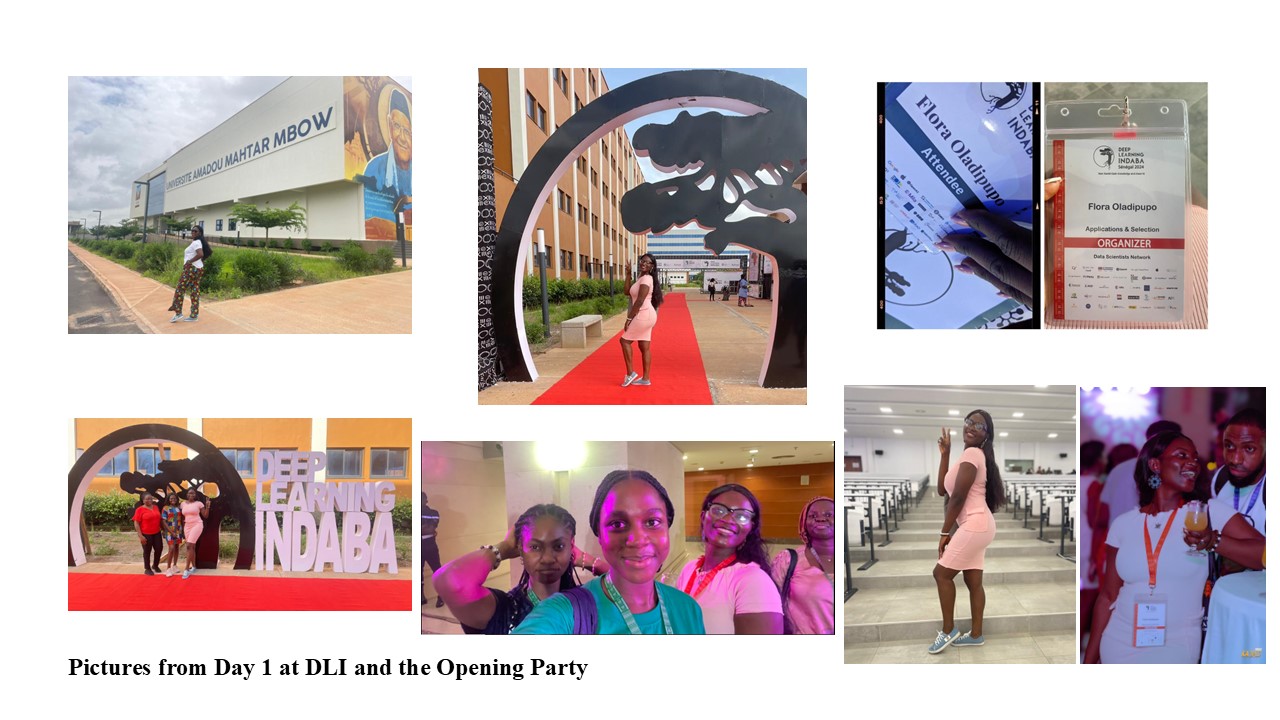
Day 2 was all about not missing out on the different practical sessions. The team from InstaDeep delivered outstanding workshops, including one on Snake Venom Analysis using Large Language Models (LLM) and another on Reinforcement Learning, titled "From Zero to 2048." I also had the chance to meet Karim Beguir, the co-founder of InstaDeep, after his inspiring talk on "Building the Future of AI in Africa."
Navigating Senegalese cuisine was an adventure of its own. Even though Senegal is a West African country, its food is quite different from what I’ve had in other parts of the region. Their staples include rice, couscous, pasta, and lots of pastries, but without the familiar stews or soups I’m used to. I mostly survived on pastries, which felt the most familiar. Imagine eating rice with okra soup (pictured in Image 5), which, to my surprise, was quite bland and lacked the spices I typically enjoy. On the bright side, the homemade juices were abundant, with Baobab juice being a popular and delicious favorite!
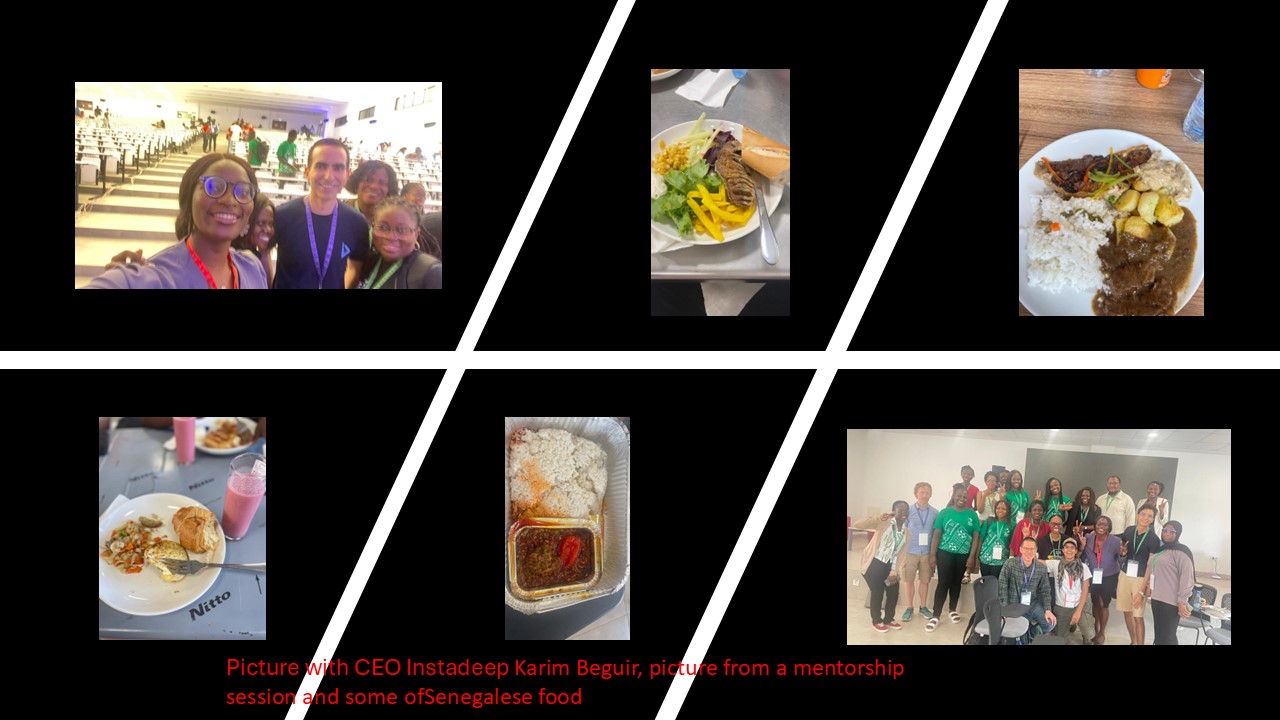
Day 3 kicked off with a keynote talk by Samy Bengio, Lead Researcher at Apple, titled "Learning to Reason is Hard." His talk highlighted the challenges AI faces in reasoning, a task that comes much more naturally to humans. Later, I attended a practical session on building recommender systems, a topic I found particularly intriguing.
In addition to the sessions, I balanced my time supporting my organization, Data Science Nigeria, and its subsidiary EqualyzAI by managing our sponsor’s booth, all while juggling my duties as an organizer at the registration booth. It was a busy but fulfilling day!
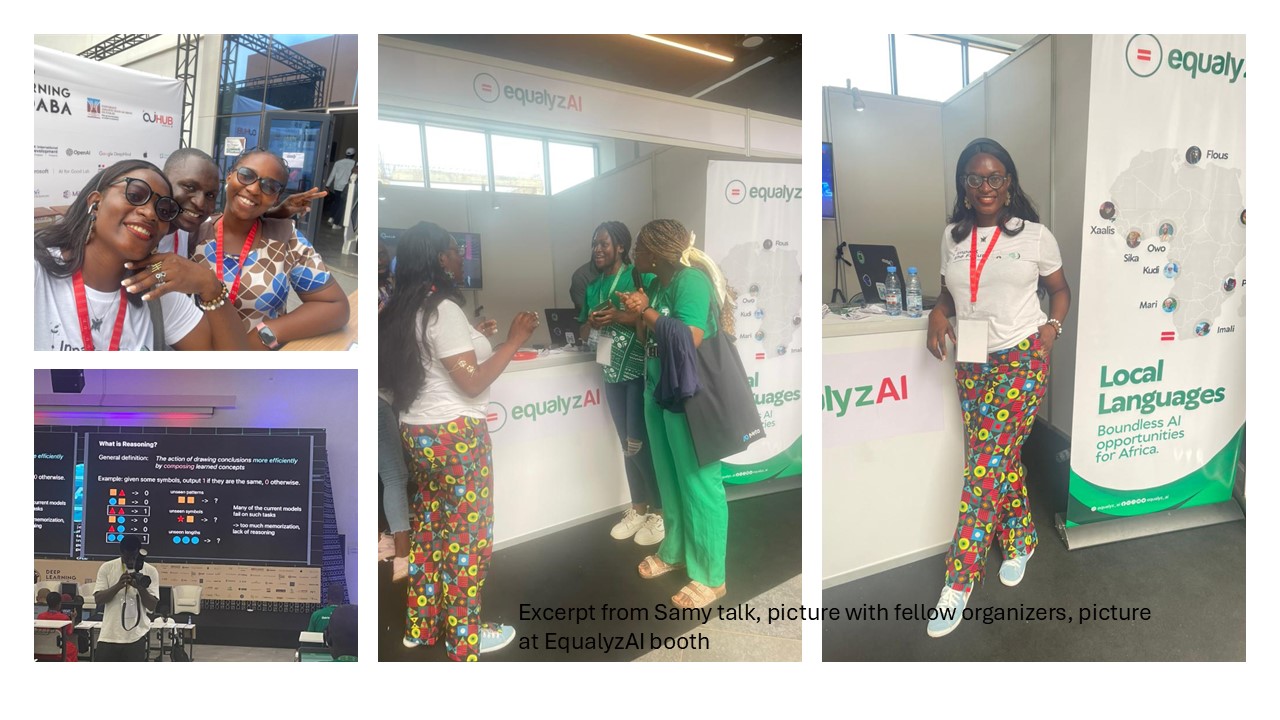
Day 4 was the day I had been eagerly awaiting, as I had the opportunity to present my publication poster. The project, titled “Geosemantic Entity Recognition and Mapping of Electoral Violence Hotspots from News Reports,” is something I’ve been working on over the past year. For my case study, I focused on Nigeria, particularly the electoral violence that took place during the 2023 elections.
This issue is not unique to Nigeria many other African countries face similar challenges. I felt a deep sense of fulfilment using my skills as an AI researcher to tackle such a significant problem and contribute to addressing electoral violence through innovative technology.
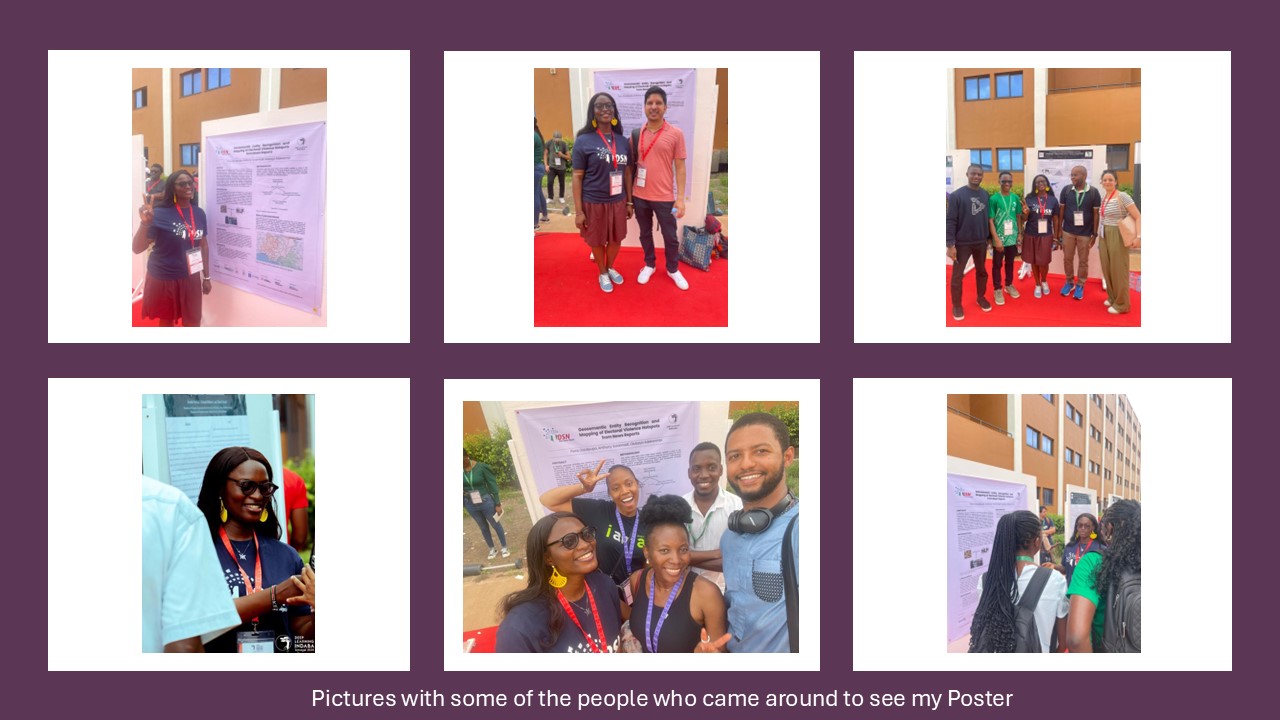
Day 5 brought another exciting opportunity to showcase my ongoing research during the poster session. My project, titled “Enhancing Inclusivity: Machine Translation of English Biological Research Papers to Pidgin-English (a language spoken by over 75 million people),” focuses on promoting inclusivity in education for Pidgin speakers. The aim is to ensure that a student in Nigeria, whose primary language is Pidgin, can understand Biology as thoroughly as a student in the U.S., where English is the dominant language.
The day ended on a festive note with the cultural night party, where everyone proudly donned their traditional attire. As a Yoruba lady, I proudly represented with my Ankara print, embracing the vibrant cultural celebration!
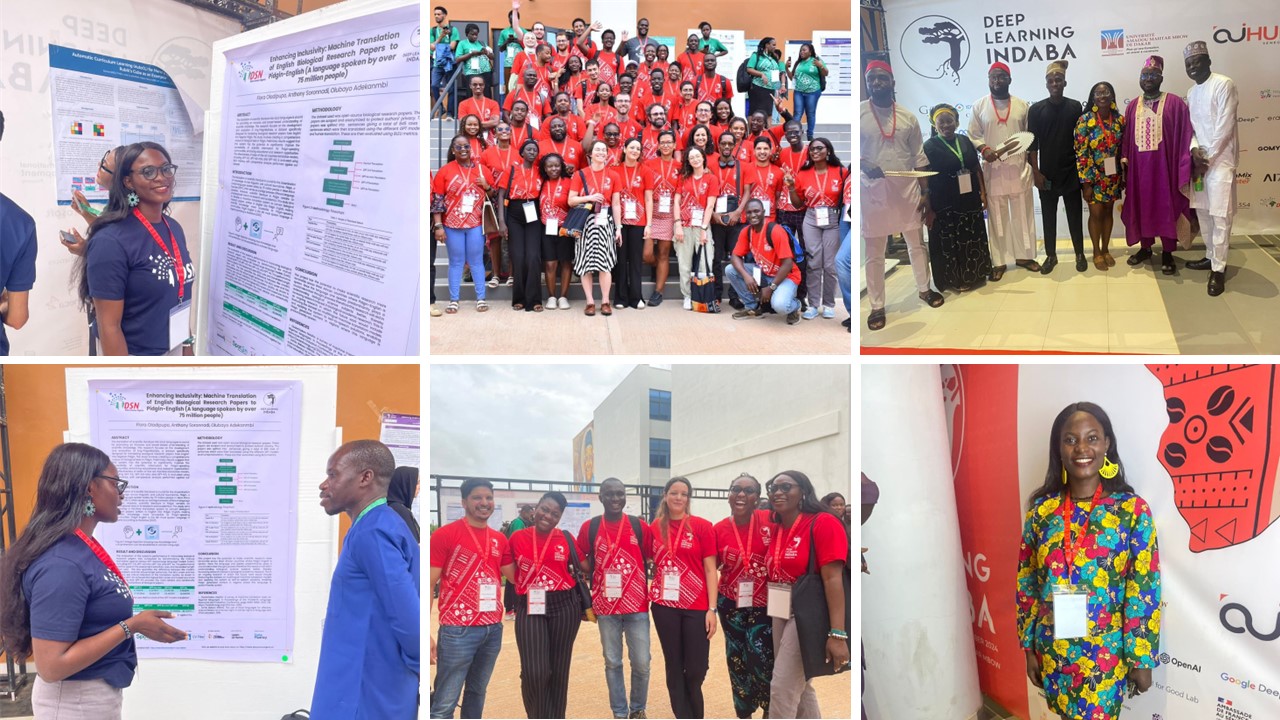
Day 6 was a big one for me, as I had the honor of moderating a panel session during the Voices of Africa workshop. The panel featured prominent figures in the AI industry including Joyce Nakatumba-Nabende Jade Abbott William Tjhi Bayo (Olubayo) Adekanmbi PhD, discussing the challenges of building models that are often underrepresented by large language models. A key takeaway was the importance of focusing on developing smaller, more efficient, and specialized models tailored for African use cases. Moderating this session for an international audience gave me a bit of stage fright, and my H-factor threatened to make an appearance, but I managed to stay composed throughout.
After the day’s events, I had the chance to attend the AFCON game between Senegal and Burkina Faso. It was a perfect coincidence that the stadium was right in front of the university and that the game happened to be played during my time there. It was my first time watching a live international match, and the experience was thrilling, especially as the game ended in a draw!
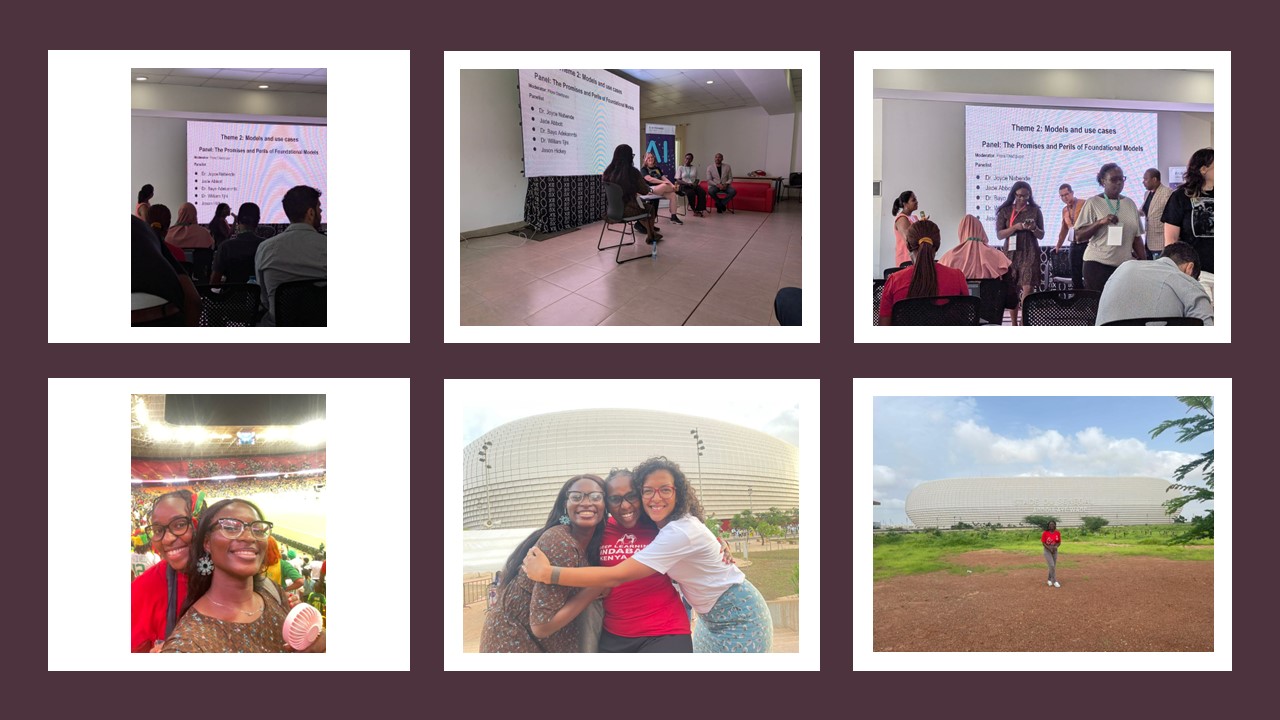
Day 7 marked the final stretch of the conference, and with it came many heartfelt goodbyes. But before we said farewell, there was time for some sightseeing! The cheapest and most efficient way to get around the city was by train, which was a first for me. The ride was smooth and quick. Along with my friend Ali from Microsoft and a few people from Google, we visited the African Renaissance Monument, the largest statue in Africa. The view from there was breathtaking one of the most beautiful I’ve ever seen.
Next, we headed to N’Gor Island, which required us to take a boat a new experience for me. The island was stunning, with its picturesque cliffs offering incredible views of the seaside.
As the event drew to a close, awards were handed out, and I was thrilled to receive one in a category sponsored by Nvidia for my work on "Geosemantic Entity Recognition and Mapping of Electoral Violence Hotspots from News Reports." I also participated in the Meta Hackathon with my Teammates Rashidat Sikiru, Patricia Idakwo, and Peculiar Abolade the hackathon was focused on fine-tuning machine translation of English to Twi using LLMs. Although my team didn’t make it to the top 3, we were proud to be among the top 10 submissions!
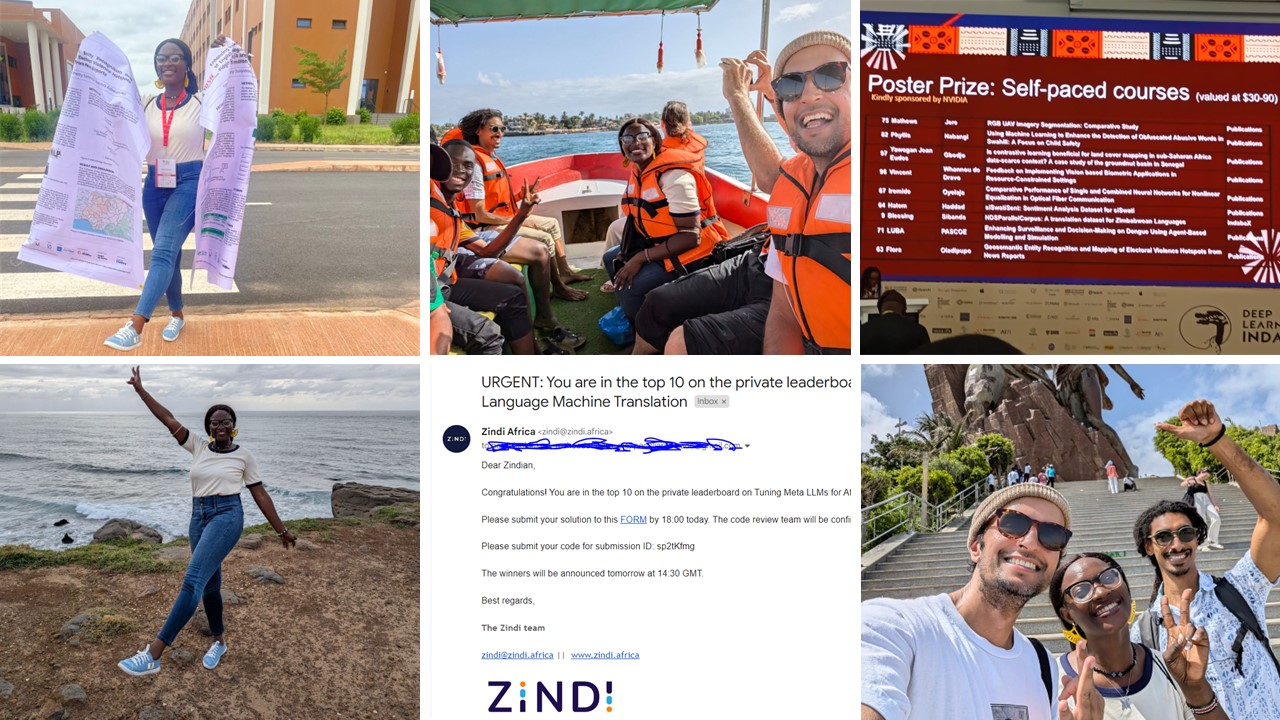
Day 8 as people began their journeys back home. However, I stayed an extra day because I couldn’t leave Senegal without visiting the famous Gorée Island. To get there, I took a ferry another first for me! Once on the island, I visited the House of Slaves, a haunting reminder of the 15th century when Europeans colonized Senegal. I saw the infamous "Door of No Return," where countless enslaved people were shipped off to Western countries. The stories of that dark time were deeply emotional, leaving many of us moved and reflective.
I also visited a 200-year-old church on the island, adding to the historical richness of the experience. All in all, it was a deeply fulfilling week, filled with new experiences, learning, and unforgettable moments.
The Deep Learning Indaba conference opens up a new experience from a different angle including learning, networking and exploring Africa with every new country the event is hosted at.
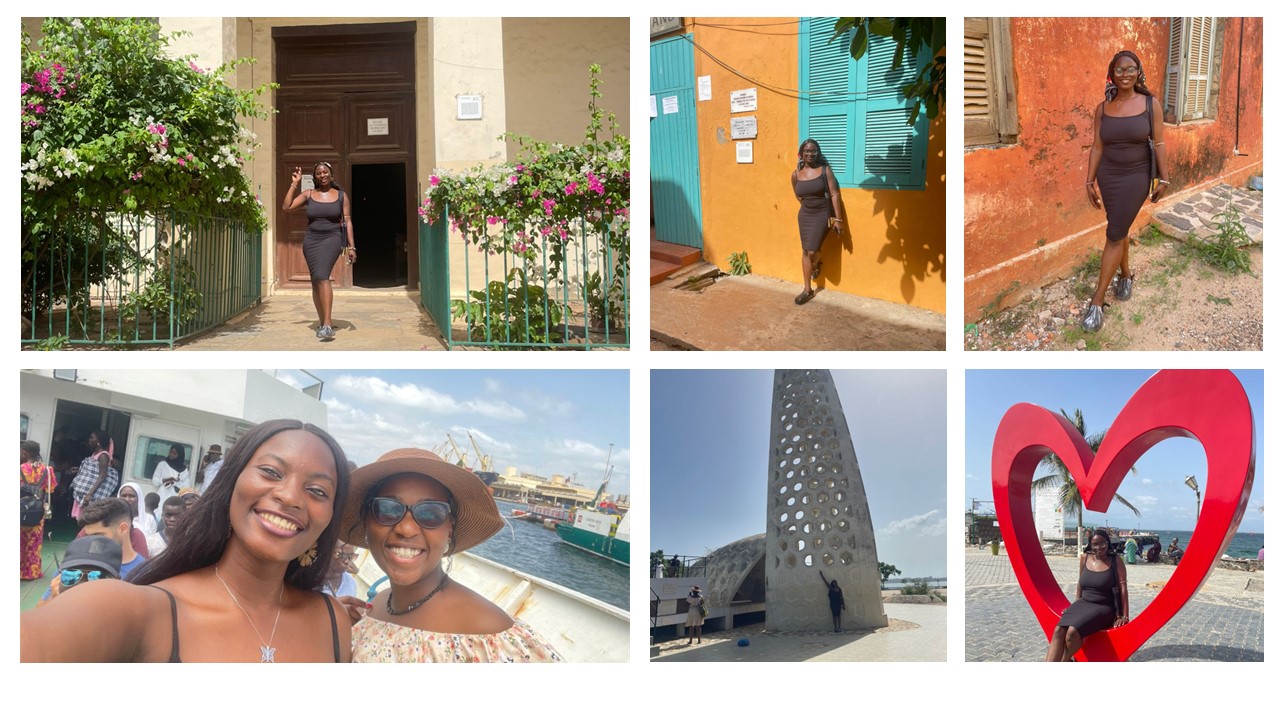
Subscribe to my newsletter
Read articles from Flora Oladipupo directly inside your inbox. Subscribe to the newsletter, and don't miss out.
Written by

Flora Oladipupo
Flora Oladipupo
I am a Data scientist who enjoys working with datasets, solving problems and exploring Artificial Intelligence
